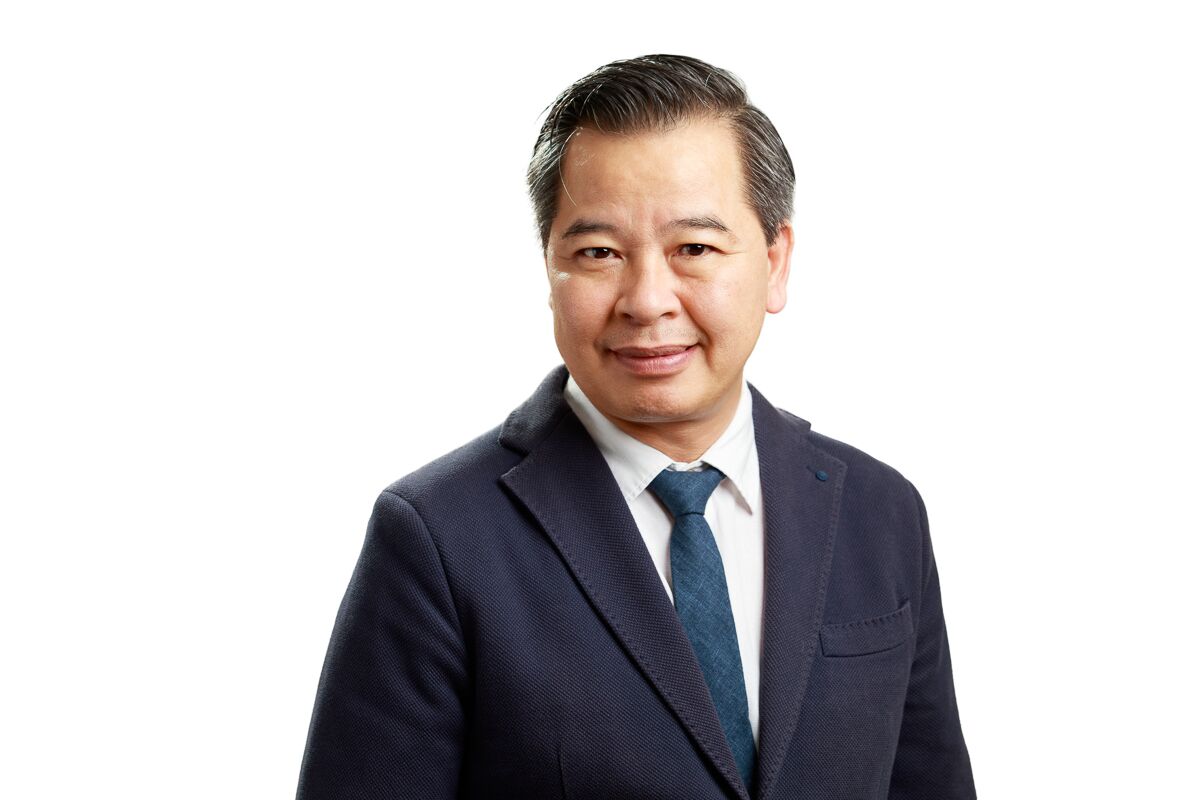
Prof. Dr. Pham Quang Minh - Rector of the University of Social Sciences and Humanities, Vietnam National University, Hanoi
ButProfessor, could you please share the core values that have served as the foundation and guiding principles for the activities of the University of Social Sciences and Humanities over the past year??
It can be said that in recent years, the philosophy "liberal education"The spirit of innovation and creativity are fundamental values that guide the University in developing and adjusting its operational plans across various fields. The University of Social Sciences and Humanities has a rich tradition and proud achievements spanning over 70 years. It has also accumulated valuable internal strengths that not every university possesses, including its social standing and prestige, its team of leading scientists in many fields of social sciences and humanities, its traditional training foundation across dozens of disciplines, and its extensive international cooperation with major universities and partners. However, it is precisely because of these factors that the University needs to strive for innovation in a rapidly changing world, and higher education is also facing new challenges."
"Liberal education"This philosophy has become a modern philosophy pursued by many leading universities around the world. This philosophy emphasizes the human element, aiming to maximize individual creativity, liberate human thinking, and enable individuals to fully develop their potential. This philosophy has become the guiding principle for the activities of the University of Social Sciences and Humanities in the current period. In addition, the mark of innovation is clearly evident in all areas of activity."
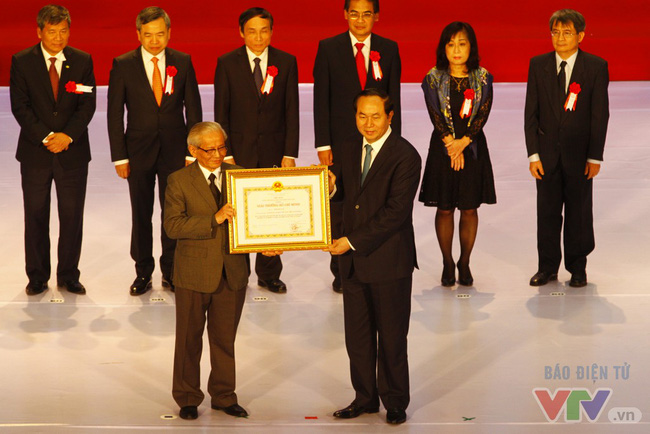
Professor Phan Huy Le, People's Teacher, received the Ho Chi Minh Prize for Science and Technology in 2017.
ButWith that philosophy and direction, what impressive highlights has the University of Social Sciences and Humanities achieved in its scientific activities during the past academic year, sir?
First and foremost, we must mention the steady increase in international publications by the faculty over the past few years. This is a very encouraging sign, as there was previously a view that social sciences and humanities would find it difficult to integrate internationally. While in 2010, the university only had 7 international publications, this number rose to 42 in 2016; and in 2017, there were 52 international publications, including 8 in journals and publishers belonging to the ISI/Scopus system. More importantly, the spirit of international publication has gradually become an essential awareness among the faculty. The university regularly applies a special reward policy for internationally published articles, organizes seminars to exchange experiences on international publication among faculty members, and is moving towards establishing a network for information exchange and support for international publications within the university. I can confidently say that with over 600 domestic publications annually, the scientific potential of the university's faculty is enormous. The key is to have a clear direction for international publications and to provide the necessary support for faculty members to access foreign scientific journals and reputable publishers worldwide.
In addition, the University has maintained remarkable achievements in scientific research annually, with the implementation of 17 national-level research projects, 3 Nafosted projects, 25 VNU-level projects, and 33 institutional-level projects. The University also established the research program "Internet and Society" and has 3 laboratories invested in by VNU. The University's staff has published 15 monographs and textbooks, including 2 monographs published in English.
In particular, on January 15, 2017, Professor Phan Huy Le was awarded the Ho Chi Minh Prize for Science and Technology for his work "History and Culture of Vietnam - A Partial Approach"..This work is considered a breakthrough in theory and methodology in the study of Vietnamese history and culture, highly appreciated by international and domestic scientists; it serves as the scientific basis for the dossier submitted to UNESCO for recognition of Thang Long Imperial Citadel as a World Cultural Heritage site. To date, the University of Social Sciences and Humanities has had 13 lecturers receive the Ho Chi Minh Prize and the State Prize for Science and Technology - a rare achievement among research and training institutions in Vietnam.
Also last year, the first major international conference on Southeast Asian Psychology was held in Vietnam, hosted by the University of Social Sciences and Humanities, with the participation of leading psychologists from 35 countries. The conference made a great impact and was a remarkable success in the university's scientific activities and international cooperation last year.
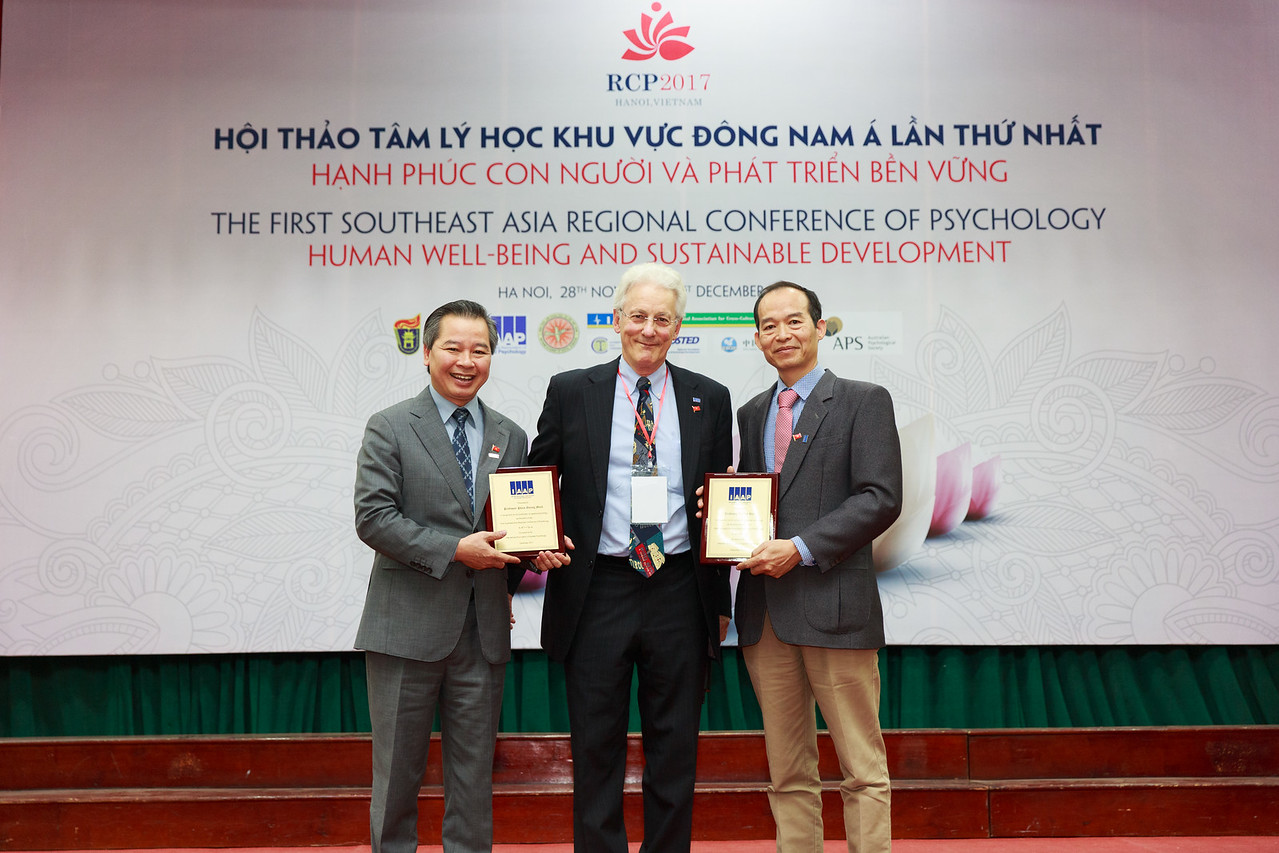
The first International Conference on Psychology on the theme “Human Well-being and Sustainable Development” (November 29 – December 1, 2017) was held in Southeast Asia. Co-organizers included: the University of Social Sciences and Humanities - Vietnam National University, Hanoi; the Institute of Psychology, Vietnam Academy of Social Sciences; IAAP - International Association for Applied Psychology; ITC - International Testing Commission; IACCP - International Association for Intercultural Psychology; CPS - Chinese Psychological Society; and APS - Australian Psychological Society. The conference brought together leading psychologists from 35 countries.
ButBesides, tHow has the spirit of innovation and creativity been demonstrated in the school's training activities over the past period, sir?
To realize its goal of building a research university, the University successfully trained and awarded doctoral degrees to 30 doctoral candidates in 15 different disciplines during the past academic year. Notably, since 2013, the University of Social Sciences and Humanities has been the first institution in the country to offer a doctoral program in Science and Technology Management, and after four years, its first doctoral candidate received their PhD. Last year, the University also awarded master's degrees to 265 students in 17 different disciplines. Among them, the Vietnamese Studies program, offered at the Faculty of Vietnamese Studies and Vietnamese Language since 2015, saw its first graduate with a master's degree, and this graduate was a foreign student. These results reflect the University's pioneering efforts in opening new training programs to meet societal needs.
The past year marked new advancements in quality accreditation. The Bachelor of Philosophy program became the third program, and Literature the fourth (after Linguistics and Oriental Studies), to receive accreditation according to AUN standards. In addition, the Bachelor of Vietnamese Studies and Psychology programs were also accredited according to the standards of the Ministry of Education and Training with good results. In 2017, the University also conducted peer review of its Bachelor programs in Journalism, Tourism and Travel Service Management, Anthropology, and Political Science..Quality assurance activities continue to develop both in breadth and depth, making a culture of quality a criterion in all of the school's activities.
One noteworthy innovation at the University of Social Sciences and Humanities last year was the shift and emphasis on a service-oriented approach in the organization, management, and provision of training. Students were placed at the center, the training process was optimized and its effectiveness enhanced, student dialogue was conducted in a substantive manner, a one-stop service mechanism was implemented, and a service-oriented and respectful attitude towards learners was emphasized. Student recruitment was also strengthened to better meet the needs of learners.
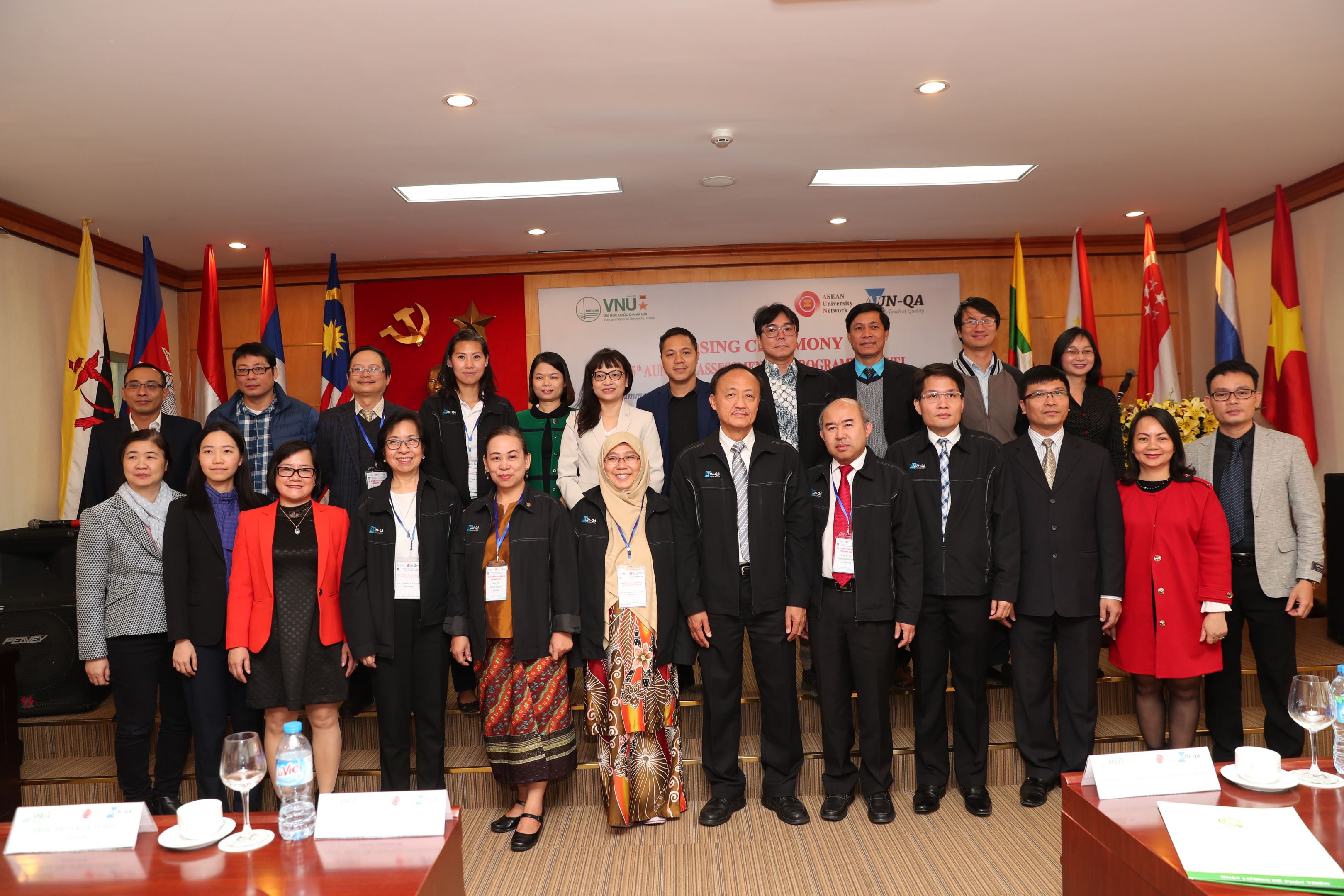
The Bachelor of Literature program was accredited according to AUN standards in 2017.
- In the past academic year, investments in human resources...with the school's attentionHow so, Professor?
During the past academic year, 3 faculty members were appointed to the title of Professor, and 7 faculty members were appointed to the title of Associate Professor, bringing the total number of Professors and Associate Professors to 102 (11 Professors and 91 Associate Professors), accounting for 27.49% of the total faculty. The university currently has 152 faculty members pursuing postgraduate studies (142 doctoral candidates and 10 master's students), including 28 studying abroad. In the past academic year, 24 faculty members successfully defended their doctoral dissertations, and 5 faculty members defended their master's theses. Currently, 232 faculty members hold doctoral degrees, bringing the percentage of faculty members with doctoral degrees to 60.3%.
These figures confirm that the development and building of the team is always a top priority, considered a prerequisite for enhancing the school's position and scientific capacity.
With the aim of improving English proficiency among faculty and students, the University has established two English clubs: the Master's Tea Club and the Lunch Box Club for English. These clubs meet weekly, focusing on specific topics related to learning and research. Members have the opportunity to practice English and exchange expertise with foreign scientists and international students teaching and studying at the University. Specialized English classes are also organized, attracting widespread participation from faculty. The activities of these two clubs and classes have initially brought a fresh perspective on the importance of using English as a key to the University's internationalization and integration strategy.
In 2017, the University also expanded its international cooperation to attract external resources to meet the needs of capacity building for staff and students. The Dao Minh Quang Foundation (Federal Republic of Germany) signed an official cooperation agreement with the University, committing to providing an annual funding of 380 million VND for awards, scholarships, and scientific research by young staff members, aiming to establish a Center for Research and Training Cooperation between the University and the Federal Republic of Germany and the EU. International cooperation activities help promote the University's activities towards integration and build a highly international academic exchange environment.
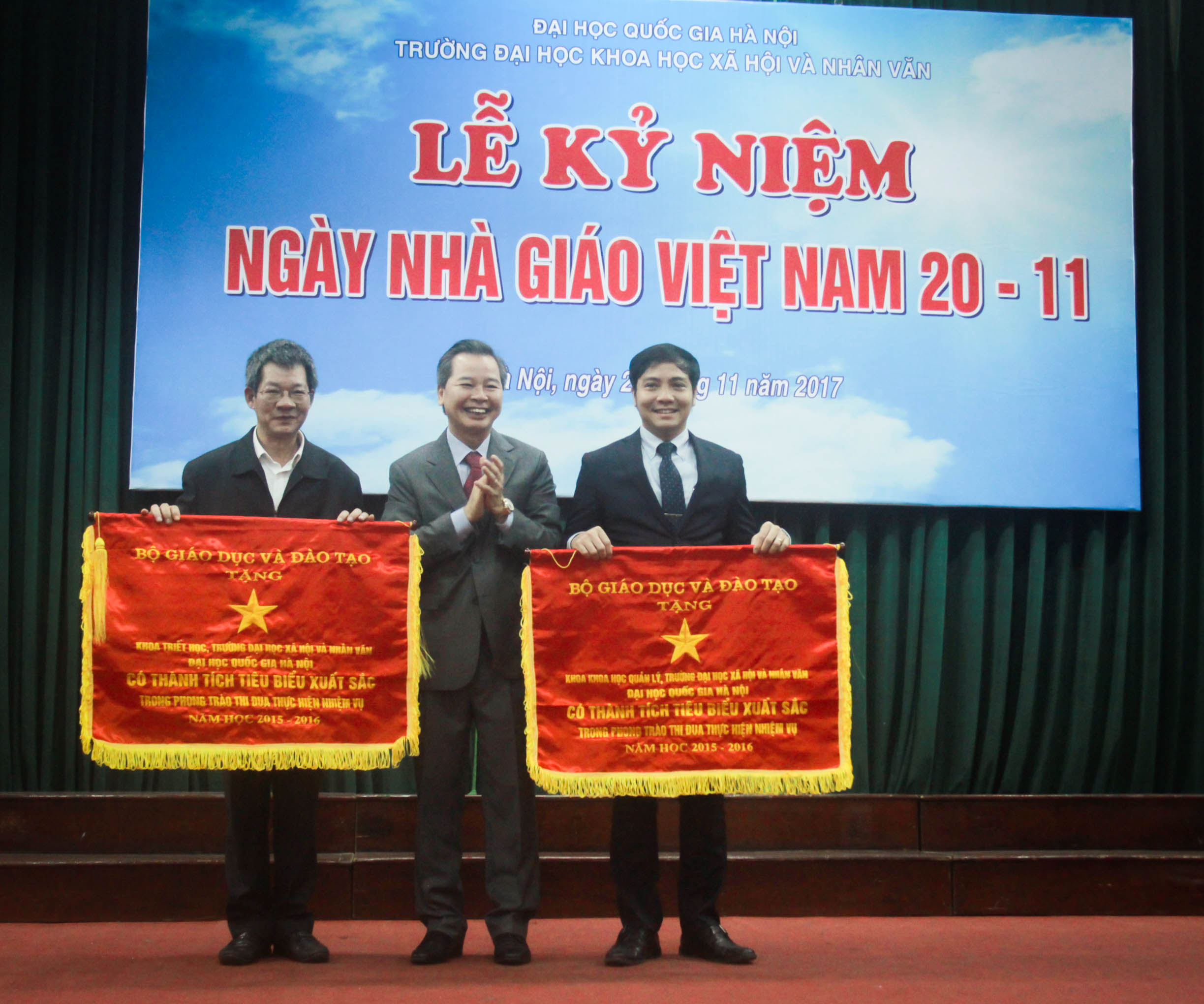
Groups and individuals were honored at the Vietnamese Teachers' Day celebration at the University of Social Sciences and Humanities.
- So, Professor, what is your assessment of the future challenges facing the University?
Essentially, the school is still on track with its established roadmap. The spirit of innovation is gradually permeating its activities and the consciousness of its staff and students. Of course, this will take a long time before tangible results can be seen.
Currently, the University faces several identifiable challenges: for example, while international publications have increased, the growth is uneven across disciplines, and there are few publications in high-impact journals (ISI/SCOPUS); applied research is limited; there are few strong research groups; there are not many outstanding scientific products or research directions that are unique to the University; the foreign language skills of the staff are still limited; postgraduate training faces many challenges with the issuance of new doctoral training regulations by the Ministry of Education and Training and Vietnam National University, Hanoi; and there are no English-taught programs for foreign students…
In the near future, the university will also face challenges regarding university autonomy, as we must take into account many factors such as market demands, social needs, and financial independence…
ButSo what are the solutions or key factors that will help the school overcome these difficulties?
I think the most important factor is still the human element. Schools need management mechanisms that foster creativity and self-motivation in each individual. Only when the collective goal is aligned and harmonized with individual interests will people be willing to be passionate and dedicated. The university environment must be truly open and free from rigid administrative constraints so that individuals can fully develop their potential.
This is a stage where we can no longer hesitate in innovation and integration. It's even a matter of survival: either continue to maintain a pioneering position and achieve success despite many difficulties, or fall behind and fail. Social sciences and humanities still have many opportunities to demonstrate their role in guiding and building a better and more prosperous society.
ButAs the Principal of the school, IteacherWhat will be done to promote the school's development in the future?
I will continue to work with the school administration to uphold the philosophy of "liberal education" because once people are liberated, their creative abilities will be multiplied many times over. In the 2018 school year, that motto was concretized through two main focuses:high-quality postgraduate training and scientific research productsThese two tasks are closely related. Postgraduate and graduate students are a potential force that needs to be attracted, cared for, and nurtured. Their research ideas need to be fostered, exchanged, and invested in under the guidance of leading professors in their fields. If this is achieved, we will address both the requirements for postgraduate training and scientific research. Regarding scientific research, the university calls for proactive engagement, dedication, and the ability to connect with scientists both domestically and internationally from young lecturers and postgraduate students to publish in prestigious international publishers.
- Thank you very much, Professor.
Author:Thanh Ha
Newer news
Older news